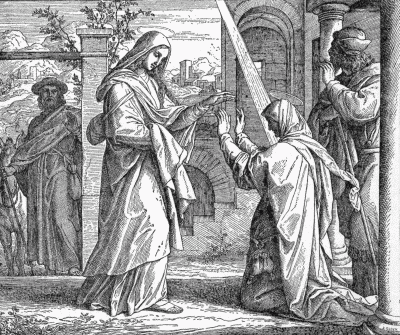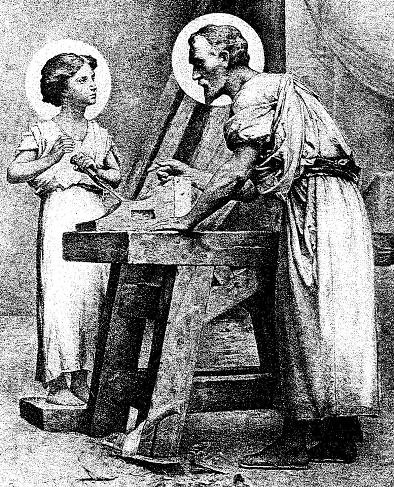Last Sunday, during the Holy Father’s recent trip to Brazil, he said
many important things, including the following:
"What did the acceptance of the Christian faith mean for the nations of Latin America and the Caribbean?
For them, it meant knowing and welcoming Christ, the unknown God whom their ancestors were seeking, without realizing it, in their rich religious traditions. Christ is the Savior for whom they were silently longing....
"In effect, the proclamation of Jesus and of his Gospel did not at any point involve an alienation of the pre-Columbian cultures, nor was it the imposition of a foreign culture.
"Authentic cultures are not closed in upon themselves, nor are they set in stone at a particular point in history, but they are open, or better still, they are seeking an encounter with other cultures, hoping to reach universality through encounter and dialogue with other ways of life and with elements that can lead to a new synthesis, in which the diversity of expressions is always respected as well as the diversity of their particular cultural embodiment.
"Ultimately, it is only the truth that can bring unity, and the proof of this is love.
"That is why Christ, being in truth the incarnate Logos
, 'love to the end', is not alien to any culture, nor to any person; on the contrary, the response that he seeks in the heart of cultures is what gives them their ultimate identity, uniting humanity and at the same time respecting the wealth of diversity, opening people everywhere to growth in genuine humanity, in authentic progress. The Word of God, in becoming flesh in Jesus Christ, also became history and culture.
"The Utopia of going back to breathe life into the pre-Columbian religions, separating them from Christ and from the universal Church, would not be a step forward: indeed, it would be a step back. In reality, it would be a retreat towards a stage in history anchored in the past.
"The wisdom of the indigenous peoples fortunately led them to form a synthesis between their cultures and the Christian faith which the missionaries were offering them. Hence the rich and profound popular religiosity, in which we see the soul of the Latin American peoples....
"All this forms the great mosaic of popular piety which is the precious treasure of the Catholic Church in Latin America, and must be protected, promoted and, when necessary, purified....
"The Church has the great task of guarding and nourishing the faith of the People of God, and reminding the faithful of this Continent that, by virtue of their Baptism, they are called to be disciples and missionaries of Jesus Christ. This implies following him, living in intimacy with him, imitating his example and bearing witness.
"Every baptized person receives from Christ, like the Apostles, the missionary mandate: 'Go into all the world and preach the Gospel to the whole creation. Whoever believes and is baptized, will be saved' (Mk 16:15). To be disciples and missionaries of Jesus Christ and to seek life ‘in him’ presupposes being deeply rooted in him."Some brutally criticized the Holy Father’s remarks, pointing out both the horrific violence and oppression that too many times accompanied evangelization efforts in that part of the world and also some of the positive values in indigenous culture.
As to the latter, the Holy Father actually spoke quite positively of the “rich religious traditions” and “wisdom of the indigenous peoples.”
As to the former, the Holy Father was clearly speaking of “the proclamation of Jesus and of his Gospel” in itself and not was not in any way endorsing any of the violence or oppression that sometimes accompanied it at different times and places. Indeed, the Holy Father spoke very clearly against violent conversion in his famous speech at
Regensburg.
Indeed, what the Successor of the Apostle Peter said in Brazil echoed what the Apostle Paul said in Athens, as we hear in today’s first
reading (Acts 17:5,22-18:1): that indigenous culture and even religion were not without good aspects that helped prepare their adherents for the fullness of truth in the Gospel of Jesus Christ and that adherents of these cultures (and all men everywhere) are called to repent and embrace Christ.
Popes such as the great John Paul II have apologized for the sins committed by Christians against people of other cultures, yet these sins must never cause any Christian (let alone a Pope) to be apologetic about “the proclamation of Jesus and of his Gospel” in itself.
Again, St. Paul put it perfectly (Romans 1:16):
For I am not ashamed of the gospel:
it is the power of God for salvation
to every one who has faith,
to the Jew first
and also to the Greek.There is also this warning from our Lord himself (Luke 9:26):
For whoever is ashamed of me and of my words,
of him will the Son of man be ashamed
when he comes in his glory
and the glory of the Father and of the holy angels.Repairing past evils does not require repudiation of God’s truth and gift of faith in the Lord Jesus Christ, through whom all salvation comes. That would only compound the evil. Indeed, repairing evils that may have accompanied past evangelization requires (among other things) a new evangelization or re-evangelization that is more intense, pure, and complete.
We must be respectful and prudent, yet we must never be ashamed of the Gospel of our Lord and Savior Jesus Christ nor shirk his command to us to “
go into all the world and preach the Gospel to the whole creation.”
 A Penitent Blogger
A Penitent Blogger






 "The truth that by means of work man participates in the activity of God himself, his Creator, was given particular prominence by Jesus Christ - the Jesus at whom many of his first listeners in Nazareth 'were astonished, saying, "Where did this man get all this? What is the wisdom given to him?.. Is not this the carpenter?"'
"The truth that by means of work man participates in the activity of God himself, his Creator, was given particular prominence by Jesus Christ - the Jesus at whom many of his first listeners in Nazareth 'were astonished, saying, "Where did this man get all this? What is the wisdom given to him?.. Is not this the carpenter?"'